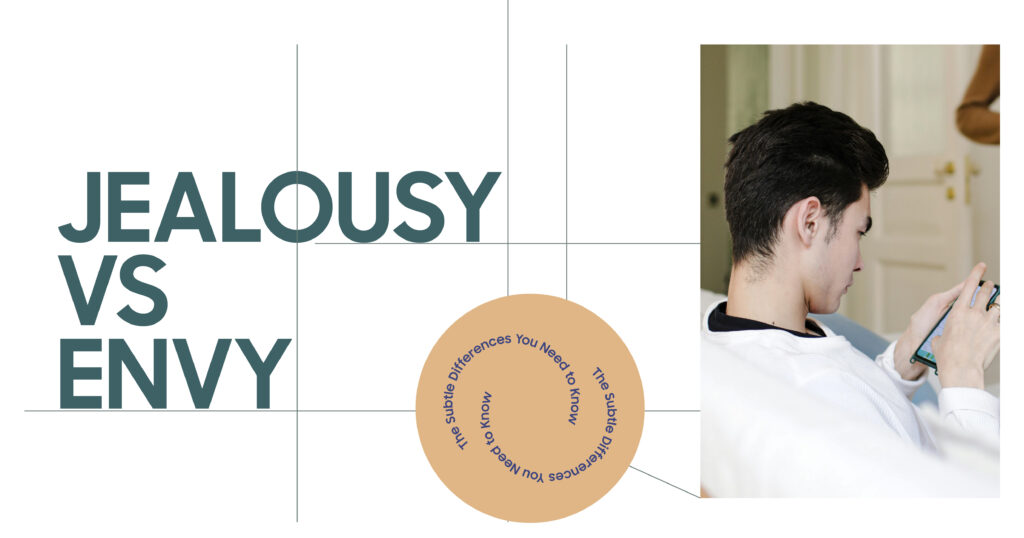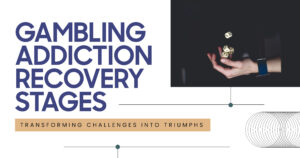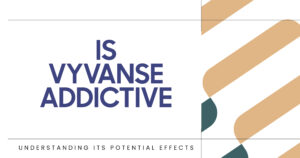Jealousy and envy are both intense emotions that can negatively impact our mental health and relationships. While many people use these terms interchangeably, there is a subtle but essential difference between jealousy and envy. Understanding these emotions can help us navigate personal connections and emotional well-being. In this article, we’ll explore the key distinctions and how they manifest in different types of relationships and provide strategies to manage these emotions effectively.
Jealousy vs Envy – What’s the Real Difference?
Jealousy vs Envy: Meaning and Emotional Triggers
At first glance, jealousy vs envy may seem the same, but they trigger different emotional responses. Jealousy typically arises when we feel threatened by the potential loss of something we already possess—whether a partner, a job, or a material item. It is a defensive reaction to protect something valuable.
In contrast, envy occurs when we resent or long for something someone else has. It often leads to self-doubt and inadequacy because we want what others possess but don’t have.
Understanding the differences between these two emotions can help us manage them in healthier ways. Identifying emotional triggers can prevent jealousy or envy from taking over.
Defining Jealousy – More Than Just Possessiveness
Jealousy Definition and How It Manifests
Jealousy is a complex emotion that often arises when we fear losing something we value, particularly in relationships. Whether it is a romantic partner, a close friend, or a prized possession, jealousy involves feelings of insecurity and fear. It can manifest as anxiety, anger, or even distrust.
Common Jealousy Examples:
- Feeling threatened by a partner’s close friendship with someone of the opposite sex.
- Becoming defensive when a friend gets more attention or praise than you do.
- Worrying that someone might take your place at work or in a social group.
While jealousy is a natural emotion, it is essential not to let it dictate your actions. If left unchecked, jealousy can strain relationships and erode trust.
What Is Envy and Why Does It Hurt?
Envy: Definition and Everyday Examples
Envy is the desire to possess something that someone else has. It is not about fearing loss, like jealousy, but about wishing we had the same qualities, success, or possessions. Envy can lead to negative feelings, including resentment, bitterness, and low self-esteem.
Common Envy Examples:
- Feeling envious when a friend gets a promotion or a new car.
- Feeling resentment when someone else has a better body or lifestyle.
- Longing for someone’s talent, skills, or opportunities.
Envy can also harm relationships, as it may lead to comparisons and dissatisfaction with our own lives.
Jealousy in Romantic Relationships
How It Affects Trust and Communication
Jealousy in relationships is particularly common. It often stems from insecurity, fear of abandonment, or possessiveness. If not appropriately managed, jealousy can damage trust and communication. When one partner becomes jealous, it might cause them to overreact, monitor their partner, or even accuse them without cause. This behavior can create distance and misunderstandings between partners.
It is essential to address jealousy with open communication. Sharing concerns and discussing boundaries can help foster trust and reduce the likelihood of jealousy spiraling out of control.
Envy in Friendships – A Silent Relationship Killer
Recognizing the Subtle Signs of Envy
While jealousy is often more overt, envy in friendships can be subtle. It might manifest as quiet resentment when one friend achieves something the other doesn’t. Whether it is a career milestone, a new relationship, or a personal achievement, envy can erode the closeness of the friendship.
Recognizing it early is key to preventing damage to your social life. Be aware of discomfort when someone else succeeds, and take steps to address these feelings healthily.
How These Emotions Differ Psychologically
From a psychological standpoint, jealousy is often linked to insecurity and fear of losing something important, while envy is driven by longing and dissatisfaction with one’s present situation.
These emotions, though related, impact our behavior in different ways:
| Emotion | Trigger | Psychological Effect | Common Manifestations |
| Jealousy | Fear of loss | Insecurity, anxiety, anger | Defensive behavior, possessiveness, and mistrust |
| Envy | Desire for what others have | Resentment, low self-esteem | Comparing oneself, feeling inferior, and isolation |
Managing Jealousy and Envy for Better Mental Health
It is essential to distinguish between jealousy and envy early on to protect your mental health. Here are some practical ways to manage these emotions:
- Self-Reflection
Understand the source of your jealousy or envy. Are there insecurities you need to address?
- Healthy Communication
Talk openly with your partner or friends about your feelings. Honest conversations can reduce misunderstandings.
- Practice Gratitude
Focus on what you have rather than what you lack. Gratitude can reduce feelings of envy.
- Develop Self-Confidence
Building your sense of self-worth can help diminish jealousy and envy over time.
- Seek Support
Don’t hesitate to seek professional help if jealousy or envy affects your relationships or mental well-being.
Seek Help for Jealousy and Envy at Treat Mental Health Washington
If jealousy or envy significantly affects your life, it may be time to seek professional support. At Treat Mental Health Washington, we offer various therapy services to help individuals manage difficult emotions. Our team of experienced mental health professionals can guide you toward healthier emotional management strategies.
If you’re struggling with jealousy or envy, contact Treat Mental Health Washington today for support.
FAQs
What is the definition of jealousy, and how does it differ from envy in psychological terms?
Jealousy is the fear of losing something important to you, often leading to anxiety and possessiveness. Conversely, envy is a desire for something someone else possesses, resulting in feelings of inadequacy or resentment.
How can understanding the difference between jealousy and envy improve relationships?
By understanding the emotional triggers of jealousy and envy, individuals can communicate more effectively and establish healthy boundaries, thereby preventing misunderstandings and fostering trust.
Can you provide examples of jealousy in relationships and how they typically manifest?
Common examples of jealousy in relationships include suspicion of a partner’s friendship with someone else or excessive checking of a partner’s phone or social media accounts.
What are some common examples of envy in friendships, and how do they affect social dynamics?
Examples of envy in friendships include feeling resentful when a friend succeeds or comparing yourself to a friend who has something you want. These feelings can create distance and tension.
How do jealousy and envy differently impact personal and professional relationships?
Jealousy can lead to controlling behavior or mistrust in personal relationships, while envy can create competition and resentment in personal and professional settings, damaging relationships and teamwork.









